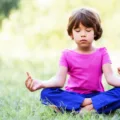Introduction to MBSR
MBSR (Mindfulness-Based Stress Reduction) is a set of relaxation, coping, and meditation techniques designed to help people deal with stress, pain, anxiety, and illness. It was originally developed in a hospital setting, but is now used in many other environments as well.
How MBSR Works
MBSR helps people cultivate greater awareness and acceptance of the present moment. This can reduce suffering caused by excessive focus on the past or future, and over-identification with difficult thoughts and emotions. By letting go of unhelpful thoughts and patterns, MBSR allows more space for peace, compassion, wisdom and joy.
The Main Components of MBSR
MBSR programs generally consist of 8-10 weekly group sessions featuring these 3 key components:
- Guided mindfulness meditation practices
- Gentle yoga and stretching
- Group dialogue and mindful communication
Outside the classes, participants are assigned daily home meditation and mindfulness practices.
The Benefits
Research has shown MBSR to provide many evidence-based benefits including:
- Reduced stress, anxiety and depression
- Increased ability to manage chronic pain and illness
- Enhanced focus, memory, creativity and productivity
- Healthier relationships due to improved communication, empathy and compassion
25 Mindfulness Exercises and Techniques
Here are 25 highly effective mindfulness practices that are commonly used in MBSR programs:
1. Body Scan Meditation
Slowly and systematically scan your attention through different parts of your body from head to toe, noticing any sensations without judging them.
2. Mindful Breathing
Pay close attention to the physical sensations of your breath as it enters and leaves your nostrils. Let distracting thoughts pass without getting caught up in them.
3. Mindful Eating
When eating something, especially a few bites of something you really savor, focus all your attention on noticing colors, smells, flavors, textures and chew slowly.
4. Walking Meditation
As you take slow, deliberate steps, pay close attention to the physical sensations in your feet and legs to fully experience each moment.
5. Mindful Listening
Listen to sounds around you or specific music without judgment or internal commentary, simply noticing tones, volumes, pitches and rhythms.
Online MBSR Courses
MBSR courses are now widely available online from top educators like universities and mindfulness experts. Here are 5 of the best MBSR online class options:
1. University of Massachusetts Medical School
Where MBSR originally started. An 8-week online course by the Center for Mindfulness directed by Jon Kabat-Zinn.
2. Mindful Living Programs
High quality 8-week online MBSR training with added modules on compassion and self-forgiveness.
3. Palouse Mindfulness
Free online MBSR-based course developed by Dave Potter, an experienced teacher.
4. The Mindfulness App
Extensive library of short mindfulness meditations, sleep, music and MBSR programs for stress.
5. Headspace
Very popular app with animations and videos to teach meditation and mindfulness.
Frequently Asked Questions
What does MBSR stand for?
MBSR stands for Mindfulness-Based Stress Reduction.
Who developed MBSR?
MBSR was created in 1979 by professor Jon Kabat-Zinn at the University of Massachusetts Medical School.
How long are MBSR classes?
A typical MBSR course lasts 8-10 weeks, with weekly 2-3 hour classes and daily home practice.
How much does an MBSR program cost?
In-person MBSR programs often cost $300-$600, while online courses range $100-$300.
Can MBSR help with anxiety and depression?
Yes, many studies have found MBSR effective at reducing symptoms of anxiety, depression chronic stress.









